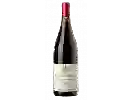
Winery Marcel MartinHaut-Poitou Les Violettes Sauvignon Blanc
This wine generally goes well with vegetarian, rich fish (salmon, tuna etc) or shellfish.
Food and wine pairings with Haut-Poitou Les Violettes Sauvignon Blanc
Pairings that work perfectly with Haut-Poitou Les Violettes Sauvignon Blanc
Original food and wine pairings with Haut-Poitou Les Violettes Sauvignon Blanc
The Haut-Poitou Les Violettes Sauvignon Blanc of Winery Marcel Martin matches generally quite well with dishes of rich fish (salmon, tuna etc), shellfish or vegetarian such as recipes of baeckeoffe with fish, salt and pepper shrimp or vegan leek and tofu quiche.
Details and technical informations about Winery Marcel Martin's Haut-Poitou Les Violettes Sauvignon Blanc.
Discover the grape variety: Alicante
Alicante Henri Bouschet noir is a grape variety that originated in France (Languedoc). It produces a variety of grape specially used for wine making. It is rare to find this grape to eat on our tables. This variety of grape is characterized by large bunches of grapes of medium size. The Alicante Henri Bouschet noir can be found in several vineyards: South-West, Cognac, Bordeaux, Languedoc & Roussillon, Rhone valley, Provence & Corsica, Loire valley, Savoie & Bugey, Beaujolais, Armagnac.
Informations about the Winery Marcel Martin
The Winery Marcel Martin is one of of the world's great estates. It offers 58 wines for sale in the of Loire Valley to come and discover on site or to buy online.
The wine region of Loire Valley
The Loire Valley is a key wine region in western France. It follows the course of the Loire River on its Long journey through the heart of France, from the inland hills of the Auvergne to the plains of the French Atlantic coast near Nantes (Muscadet country). Important in terms of quantity and quality, the region produces large quantities (about 4 million h/l each year) of everyday wines, as well as some of France's greatest wines. Diversity is another of the region's major assets; the styles of wine produced here range from the light, tangy Muscadet to the Sweet, honeyed Bonnezeaux, the Sparkling whites of Vouvray and the juicy, Tannic reds of Chinon and Saumur.
The word of the wine: Tranquil (wine)
Refers to a non-sparkling wine.














